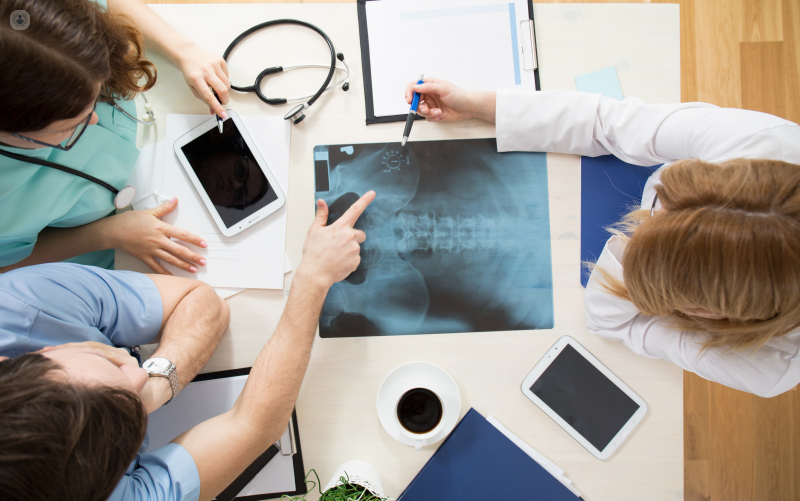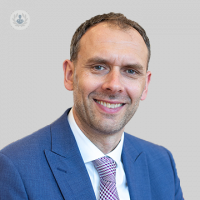Who is most likely to suffer from a broken hip?
Written by:A broken hip is a very common injury in the UK, with more than 75,000 patients suffering from a broken hip every year. A broken hip is a term used to describe a fractured thigh bone (neck of the femur).
Mr Nick de Roeck speaks more about who’s at a greater risk of a hip fracture and the course of action taken once a person breaks their hip.

Who is more likely to break their hip?
The majority of hip fractures occur in elderly patients, following a simple trip or fall. As the population ages, it is predicted that the number of patients suffering from a broken hip will continue to climb. As we age our skeleton can start to weaken, most commonly due to osteoporosis. Osteoporosis puts us at risk of fractures following less severe injuries that we call fragility fractures. A hip fracture is one example of a fragility fracture.
Osteoporosis can occur in younger patients if they have a strong family history of the condition or suffer from another condition that leads to osteoporosis as a secondary effect.
How would you know if you broke your hip?
If somebody breaks their hip it is very painful in the groin, thigh or bottom and usually, people are unable to bear any weight on it. An ambulance is usually needed to take the patient to the hospital.
What happens next?
Almost all patients need surgery to treat a broken hip. The aim of the surgery is to relieve the pain and allow immediate weight-bearing. Depending on the type of hip fracture, surgery is performed either to repair the broken femur or to replace the femoral head (ball).
As most patients are elderly they may have other medical conditions or start to become frail. Early surgery is key to minimising complications arising from the injury or other health problems. In general, the surgery takes place on the day of or day after admission to hospital. Although having surgery carries risks, the potential risks and problems of not having surgery are far greater.
After surgery
It has been increasingly recognised how important looking after all aspects of a patient’s medical and social needs are after surgery. In most hospitals, specialist doctors called orthogeriatricians will be involved in looking after patients post-surgery, working alongside the surgeons, therapists and nurses.
The aim of treatment is to try and restore people to their pre-existing level of function and return them to their own home or residence. In general, the more active and fit somebody is before their injury, the greater the chance of achieving this.
Unfortunately, some frailer patients do lose some of their pre-existing mobility and may require increased support to return home or they may even need to move to a more supported environment.
If you would like to discuss hip problems with orthopaedic surgeon Mr Nick de Roeck, you can contact his private clinics in Hatfield and Hitchin via the Top Doctors website.


